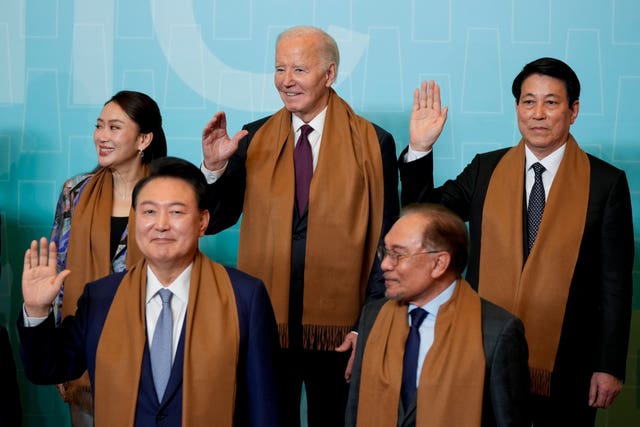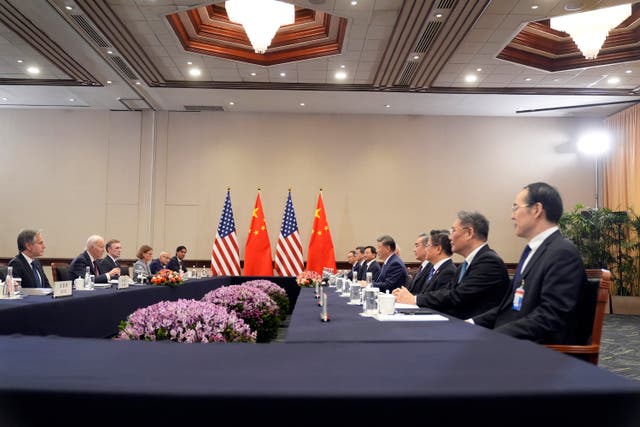In their final meeting, China’s leader Xi Jinping told US President Joe Biden that “China is ready to work with a new administration,” as President-elect Donald Trump prepares to take over.
The two leaders met on Saturday on the sidelines of the annual Asia-Pacific Economic Co-operation summit.
Mr Biden had been expected to urge Mr Xi to dissuade North Korea from further deepening its support for Russia’s war on Ukraine.

Without mentioning Mr Trump’s name, Mr Xi appeared to signal his concern that the incoming president’s protectionist rhetoric on the campaign trail could affect the US-China relationship.
“China is ready to work with a new US administration to maintain communication, expand co-operation and manage differences so as to strive for a steady transition of the China-US relationship for the benefit of the two peoples,” Mr Xi said through an interpreter.
Mr Biden, meanwhile, spoke in broader brushstrokes about where the relationship has gone and reflected not just on the past four years, but on their long relationship.
“Over the past four years, China-US relations have experienced ups and downs, but with the two of us at the helm, we have also engaged in fruitful dialogues and co-operation, and generally achieved stability,” he said.
Mr Biden and Mr Xi, with top aides surrounding them, gathered around a long rectangle of tables in an expansive conference room at Lima’s Defines Hotel and Conference Centre.
Mr Biden said he was proud of the work the nations had achieved since their last meeting, which was last year on the sidelines of the conference held in San Francisco.
It is the last time they will meet officially; Mr Biden is leaving office and making way for Mr Trump. There is much uncertainty about what lies ahead in the US-China relationship under Mr Trump, who campaigned promising to levy 60% tariffs on Chinese imports.

Saturday’s talks in Peru come just over two months before Mr Biden leaves office and makes way for Republican President-elect Mr Trump.
Mr Biden on Friday, along with South Korean President Yoon Seok Yul and Japan’s Prime Minister Shigeru Ishiba, condemned North Korean leader Kim Jong Un’s decision to send thousands of troops to help Moscow repel Ukrainian forces who have seized territory in Russia’s Kursk border region.
Mr Biden called it “dangerous and destabilising co-operation.”
White House national security adviser Jake Sullivan said Biden administration officials will advise the Trump team that managing the intense competition with Beijing will likely be the most significant foreign policy challenge they will face.
It is a big moment for Mr Biden as he ends more than 50 years in politics. He saw his relationship with Mr Xi as among the most consequential on the international stage and put much effort into cultivating that relationship.
But the last four years have presented a steady stream of difficult moments.
The FBI this week offered new details of a federal investigation into Chinese government efforts to hack into US telecommunications networks.
The initial findings have revealed a “broad and significant” cyberespionage campaign aimed at stealing information from Americans who work in government and politics.
US intelligence officials have also assessed that China has surged sales to Russia of machine tools, microelectronics and other technology that Moscow is using to produce missiles, tanks, aircraft and other weaponry for use in its war against Ukraine.
And tensions flared last year after Mr Biden ordered the shooting down of a Chinese spy balloon that crossed the United States.





House Rules
We do not moderate comments, but we expect readers to adhere to certain rules in the interests of open and accountable debate.
Read the rules here